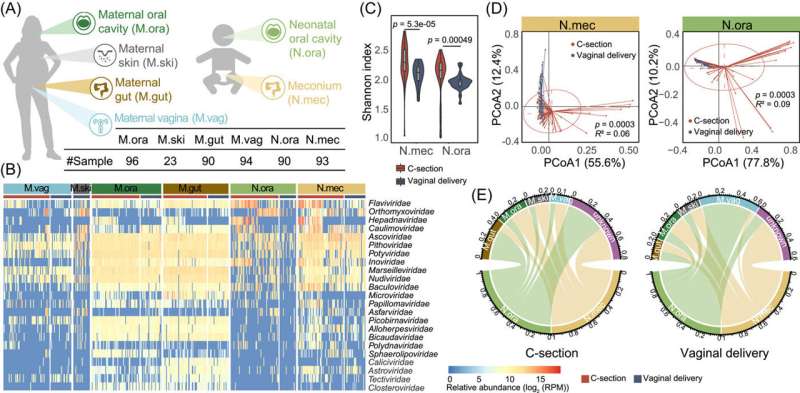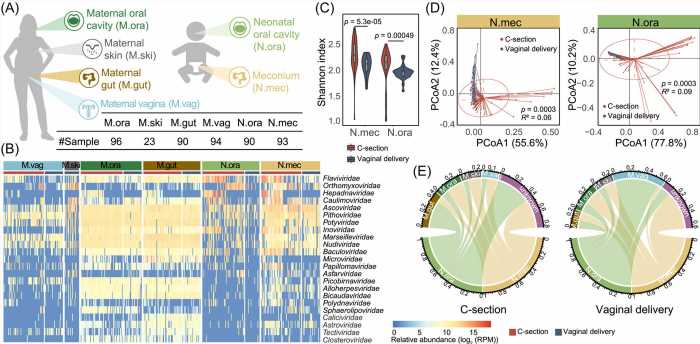
Both the gut microbiome and virome of early life have always drawn research attention because they are strongly associated with the health status of an individual in the future. The gut virome, consisting of phages and eukaryotic viruses, directly or indirectly affects infant and child health. As the dominant component in gut virome, phages shape the microbiota in early life by preying on bacteria.
A cumulative effect of enterovirus and gluten intake on the risk of celiac disease autoimmunity in infants highlights the significance of viral exposure in early life on the health of children. “Pathogenic viruses may be transmitted to the offspring in an earlier period, raising the possibility that women whose vaginas are inhabited by such viruses may have had their babies infected as early as the time of delivery,” said Dr. Jinfeng Wang, who is the first author of this study published in mLife.
Dr. Zhao’s team recruited 99 mother–newborn pairs—32 vaginal delivery and 67 cesarean‐section (C‐section)—and collected 486 samples from six body sites, including saliva, stool, vagina, and skin of mothers, and oral contents and the first excretion (meconium) of newborns. They used metagenomic sequencing to obtain a total of 3.85 Tb meta-genomic sequencing data to identify viruses.
They identified eukaryotic viruses and phages from both sequencing reads and metagenome assemblies, analyzed the maternal-infant virome and compared the transmission events of viruses from mothers to offspring with different delivery modes.
They found that vaginally delivered newborns seconds after birth had a more similar oral virome and more viruses of vaginal origin than C‐section newborns (56.9% vs. 5.8%). Dr. Zhao said, “Neonates are exposed to vaginal viruses as they pass through the reproductive tract, and viruses of vaginal origin may threaten their health.”
Source: Read Full Article
